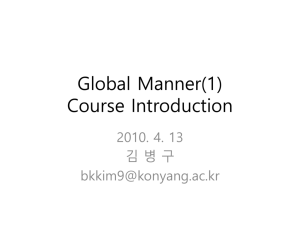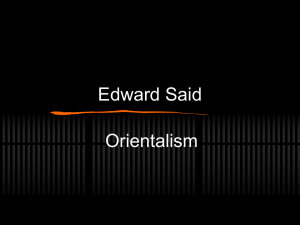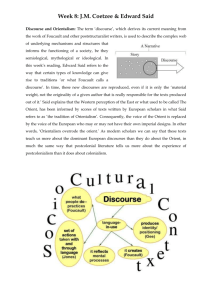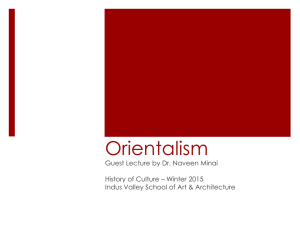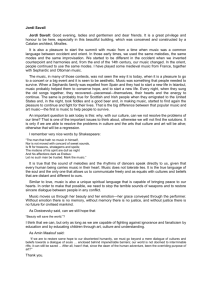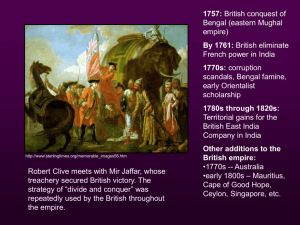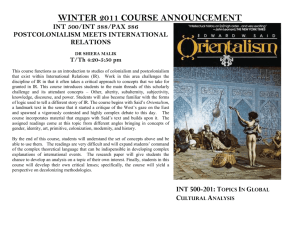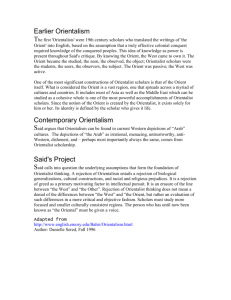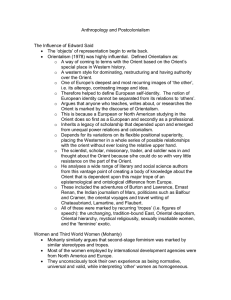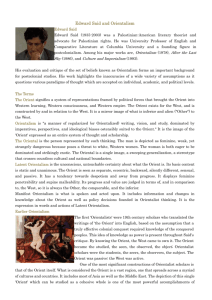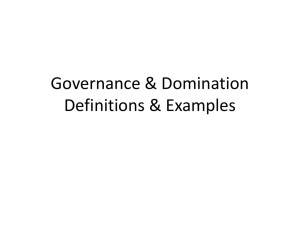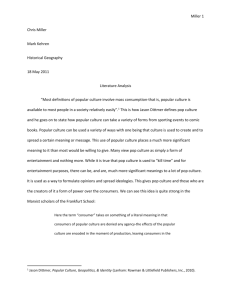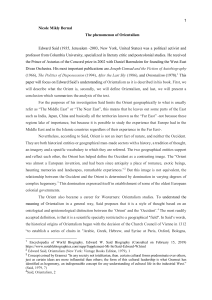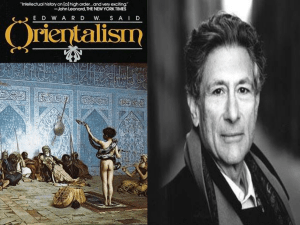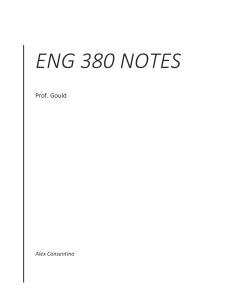WEEK 03 (ORIENTALISM)
advertisement
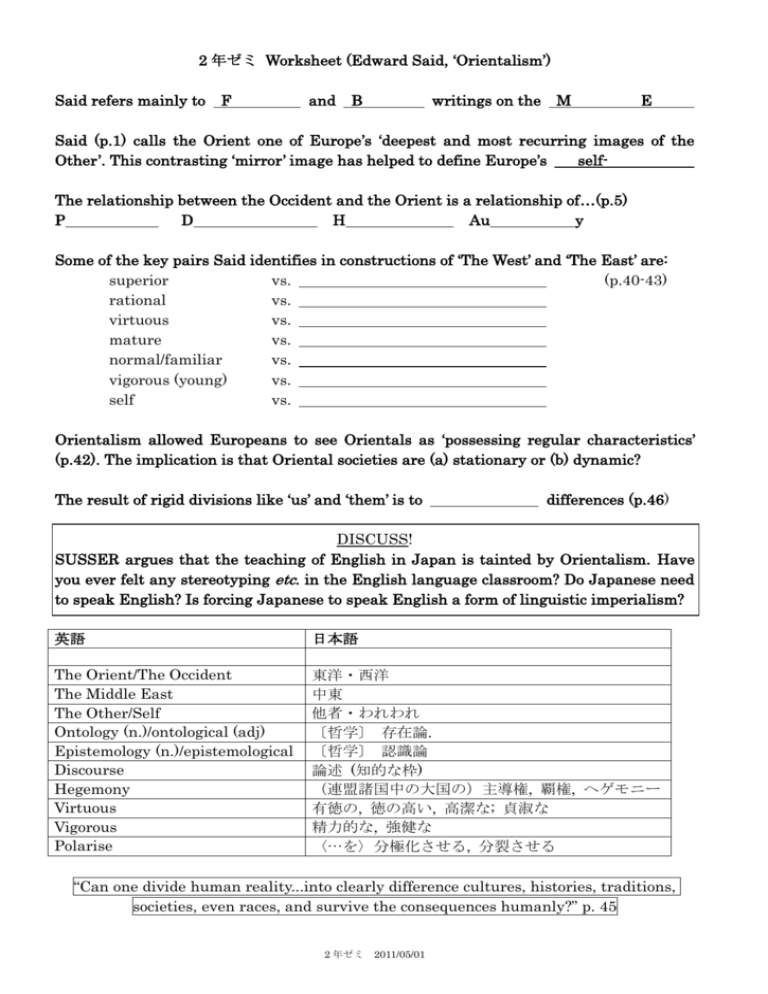
2 年ゼミ Worksheet (Edward Said, ‘Orientalism’) Said refers mainly to F and B writings on the M E Said (p.1) calls the Orient one of Europe’s ‘deepest and most recurring images of the Other’. This contrasting ‘mirror’ image has helped to define Europe’s selfThe relationship between the Occident and the Orient is a relationship of…(p.5) P D H Au y Some of the key pairs Said identifies in constructions of ‘The West’ and ‘The East’ are: superior vs. (p.40-43) rational vs. virtuous vs. mature vs. normal/familiar vs. vigorous (young) vs. self vs. Orientalism allowed Europeans to see Orientals as ‘possessing regular characteristics’ (p.42). The implication is that Oriental societies are (a) stationary or (b) dynamic? The result of rigid divisions like ‘us’ and ‘them’ is to differences (p.46) DISCUSS! SUSSER argues that the teaching of English in Japan is tainted by Orientalism. Have you ever felt any stereotyping etc. in the English language classroom? Do Japanese need to speak English? Is forcing Japanese to speak English a form of linguistic imperialism? 英語 日本語 The Orient/The Occident The Middle East The Other/Self Ontology (n.)/ontological (adj) Epistemology (n.)/epistemological Discourse Hegemony Virtuous Vigorous Polarise 東洋・西洋 中東 他者・われわれ 〔哲学〕 存在論. 〔哲学〕 認識論 論述 (知的な枠) (連盟諸国中の大国の)主導権, 覇権, ヘゲモニー 有徳の, 徳の高い, 高潔な; 貞淑な 精力的な, 強健な 〈…を〉分極化させる, 分裂させる “Can one divide human reality...into clearly difference cultures, histories, traditions, societies, even races, and survive the consequences humanly?” p. 45 2 年ゼミ 2011/05/01
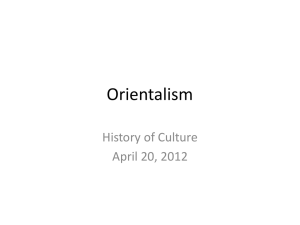
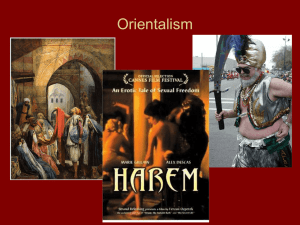
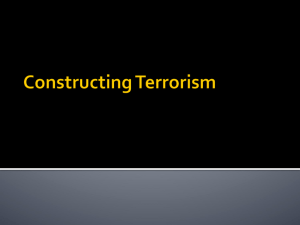
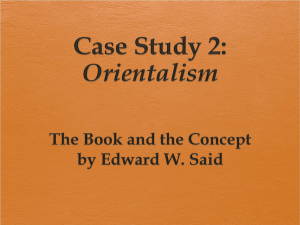
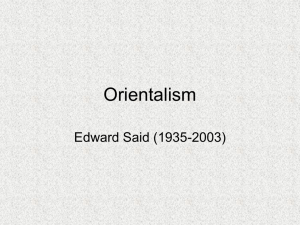
![Orientalism PPT[1].](http://s3.studylib.net/store/data/009508903_1-bf40dd03912d19b9c9baea1f12c90f25-300x300.png)
